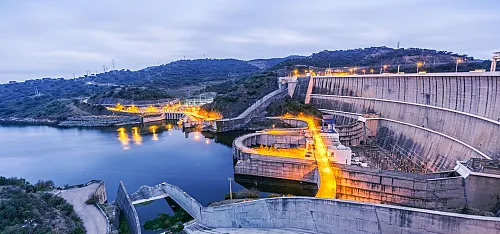05.02.2024
Legal Alert | Proposal for a new EU Regulation on the screening of foreign investments - Implications for Portugal
On 24 January 2024, the European Commission published a Proposal for a Regulation to strengthen the screening of foreign investments in the European Union (Proposal).
The Proposal is part of a set of measures announced by the Commission intended to improve the economic security of the European Union (EU). It aims to correct inefficiencies of the current EU regulation, Regulation (EU) 2019/452 of the European Parliament and of the Council, establishing the framework for screening foreign direct investments in the Union, which currently allows (but does not require) Member States to adopt a screening regime for these investments for reasons of security or public order. The Proposal also establishes a mechanism for cooperation between member states and the Commission when national authorities of one or more states decide to analyse a specific foreign investment.
The Proposal includes far-reaching changes to the current EU regime, notably the obligation for each Member State to set up a national screening regime, mandatory filing for transactions in certain sensitive sectors, and the strengthening of the cooperation mechanism between national authorities and the Commission.
Portugal has had a foreign investment control regime in place since 2014. Decree-Law no. 138/2014, of 15 September, gives the Portuguese government the power to investigate transactions resulting directly or indirectly in the acquisition of control by an investor outside the EU or the European Economic Area (EEA) over strategic assets in the defence, energy, transport communications sectors. The government may oppose a transaction to the extent that it threatens national defence and security, or the security of supply of essential services to the national interest.
The Proposal will entail profound changes to the Portuguese regime in several respects.
A new screening mechanism
The Proposal requires mandatory prior filing and clearance for transactions where the target companies participate in EU programmes of Union interest or are active in sectors considered strategic due to their particular relevance to security and public order, such as semiconductors, artificial intelligence, biotechnology, digital communications, new energy technologies (hydrogen, smart grids, batteries, etc.), robotics, critical medicines, or services essential to the financial system (see Annexes I and II). Transactions subject to mandatory filing will be subject to a standstill obligation, meaning that the transaction cannot be closed before approval by the competent national authorities.
National screening mechanisms must also fulfil a set of minimum criteria, and, in the case of investments not subject to mandatory filing, the competent national authority must be able to assess a transaction up to 15 months after its completion.
Under Decree-Law no. 138/2014, filing of a transaction with the Government is currently voluntary. Government investigations are subject to tight deadlines (e.g., the Government must initiate an investigation within 30 days of the conclusion of a transaction or the date in which it becomes publicly known). If the Proposal is enacted, Portugal will be required to establish a mandatory prior notification regime, with considerably longer time periods for ex officio investigations. The Government will also be required to publish an annual report on the enforcement of the national regime, which is currently not the case, significantly enhancing transparency.
New criteria for evaluating investments
The criteria for assessing whether the investment "adversely affects security or public order", which are currently optional, will be mandatory under the Proposal. While not exhaustive, these are: the impact on critical infrastructures, critical technologies, the supply of critical production factors, the protection of sensitive information, and the freedom and pluralism of the media.
The current criteria for the Government’s substantive assessment under Decree-Law no. 138/2014 are significantly more limited, meaning that the revision of the national regime would also likely imply a broadening of the national security and public order interests relevant when analysing foreign investments.
Extension of scope to European entities controlled by third country investors
The Proposal includes an extension of the scope of the current EU Regulation to cover investments carried out by entities established in the EU, but which are indirectly controlled by investors from third countries. This clarification became necessary following the recent judgment of the Court of Justice in case C-106/22, Xella Magyarország, which ruled that Regulation 2019/452 only applies to transactions carried out by entities from third countries. In this respect, the Portuguese regime would not require any change, since it already provides for the application of the screening mechanism in cases of direct or indirect control by third-country entities in the meaning of Portuguese competition law rules (see Article 3 of Decree-Law no. 138/2014).
Strengthening the role of other Member States and the Commission
The Proposal also aims to significantly strengthen the existing co-operation mechanism between the Member States where the investment takes place, the Commission, and the other Member States:
- Investments affecting several Member States will be subject to specific rules, which apply both to the notifying investor (who must notify all the affected States at the same time) and for national authorities, who must coordinate with each other in the course of the investigation and before taking a final decision (for example, where several Member States decide to open an in-depth investigation into a transaction, the decision must be taken on the same date).
- As at present, the Member State initiating an investigation must inform the Commission and the other Member States and take their opinions into account. The Proposal innovates by establishing that the Member State in which the investment takes place must organize a meeting to discuss the planned decision with other Member States and the Commission, and subsequently inform the Commission and the other Member States of the final decision it has taken, justifying where it has departed from the opinions exchanged during the procedure.
- Another innovative instrument is the "own-initiative procedure", which allows a Member State to analyse an investment made in the territory of another Member State (if the latter has not been notified), when it considers that its own security or public order may be affected. The Commission also has this power regarding investments that may adversely affect the security or public order of more than one Member State or Union projects.
Decree-Law no. 138/2024 does not establish any mechanisms for co-operation with the Commission or other Member States, nor does it consider the cooperation requirements of the current EU Regulation, given the short time periods available to the Government to screen investments. If the Proposal is approved in its current terms, the Portuguese regime will have to include a system of cooperation for transactions with an impact on several Member States, as well as the possibility of analysing investments made in other Member States.
Next steps
The Proposal published by the Commission is only the first step in the European legislative procedure and should now be reviewed and approved by both the European Parliament and the Council, where the governments of the Member States are represented. In matters of national security, Member States have traditionally been protective of their competence, suggesting that the Proposal will probably be subject to several amendments before it is finally enacted.
The Proposal nevertheless signals the EU’s willingness to significantly step up control of transactions involving third-country investors, which should be interested in following the developments of the legislative procedure and the terms in which the Regulation will be approved.


